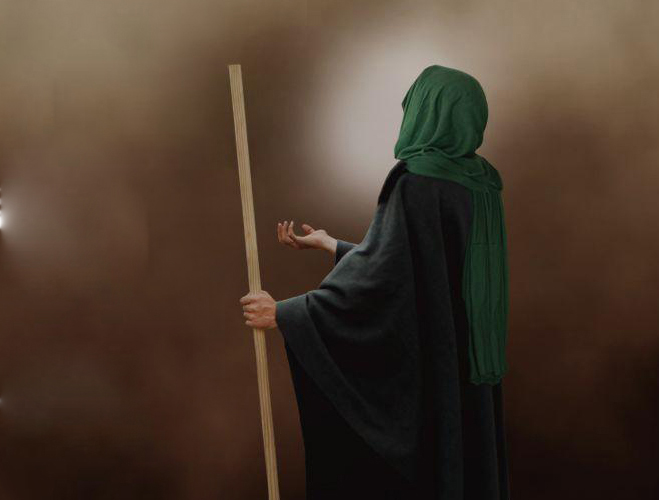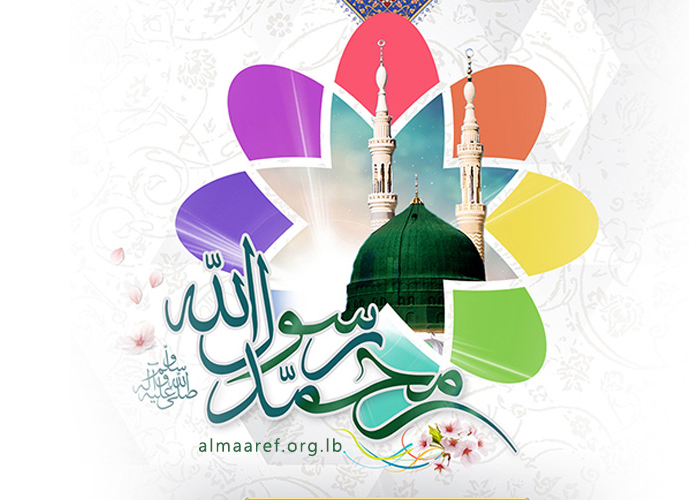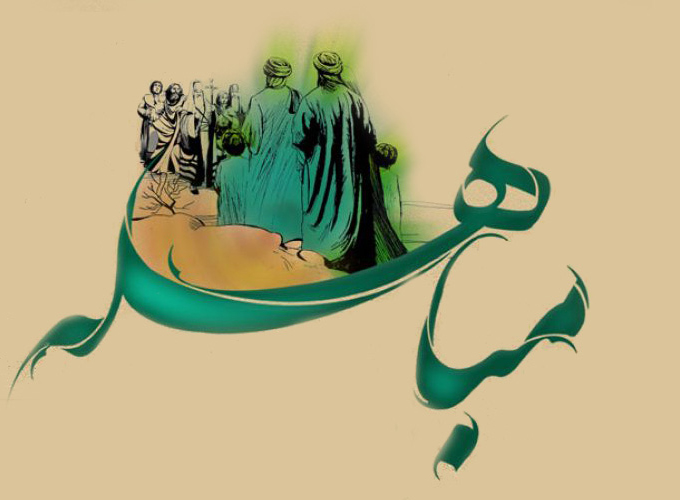God almighty says:” And remember) when Abraham said to his father Azar: 'Will you take idols for gods, surely I see you and your people are in a manifest error”.[1]
Indications:
-The word “father” which is pronounced “Ab” in Arabic is used often to call for the father, but sometimes it is used to call for the grandfather from the mother side or for the uncle. This is affirmed because the prophet Yaacoub sons used the word “father” to call for their fathers and their father’s uncle who is the prophet Isma’il (pbuh): “We worship the God of you and your fathers Ibrahim, Isma’il and Ishak”[2]. In the same context, the prophet Mohammad says:” I and Ali are the fathers of this nation”. Then, Azr is the uncle of the prophet Ibrahim (pbuh), not his father since all Ibrahim’s fathers were monotheists.[3]
-Some of the scholars of Sunnis like Al Tabari, Al Alusi, and Al Sayuti also call for this opinion that says that Azr wasn't the father of the prophet Ibrahim (pbuh). In addition, according to what was mentioned in the holy Quran, the prophet Ibrahim (pbuh) supplicated for his parents: O my God, forgive me and my parents…[4]” at the time we know that a muslim is not allowed to supplicate for a polytheist, even if they have family bonds.
-We conclude from all what was mentioned that the word "father" which is mentioned in this holy verse doesn't mean his father since it is popular in the history books that Ibrahim's father is called "Tarokh", not Azr[5].
-We should also point out here that Ibrahim’s Istighfar (asking God for forgiveness) for his uncle Azr and his promise for him were before knowing about the soul of polytheism that occupies him. But, when he (pbuh) knew that he abstains from accepting the truth, he disowned and left him “But when it became clear to him that he was an enemy to Allah, he dissociated himself from him”[6].
Teachings:
Having family bonds doesn’t mean abstaining from forbidding evils: “ and mention when Ibrahim said to his father…”.
The standard in behaving with others is the truth not the age:” Ibrahim said to his father”. The prophet Ibrahim has shown the clear truth to his uncle Azr who is older than him. He also warned him about the impacts of that.
The right method in calling for the truth is to start with your family first:” He said to his father…” then discuss the main ideas:” Do you take idols as God, to worship?”.
The history of polytheism goes back to the era before the mission of the prophet Ibrahim:” Do you take idols as God?”.
Factors such as the majority, the preceding and the age cannot transform the falsehood into a truth and they are not a value in all circumstances:” I see you and your people in a manifest error”.
Taking idols as Gods to worship is an act of straying from the right path. This straying stimulates the criticism and anger of those with alive and flawless hearts:” Do you take idols… it is a manifest error”.
The prophet Ibrahim (pbuh) was known by his patience and big heart:” Most surely Ibrahim was forbearing, tender-hearted[7]”. Knowing that a prophet should be soft even with Pharoah, we can see seriousness and strictness in the words of Ibrahim (pbuh) with his uncle. This was a reason for the insistence of his uncle on his atheism:” I see you and your people in a manifest error”.
The Explanation of Al Nour (the light), His Eminence Al Sheikh Mohsen Kira’ati
[1] Surah Al An’am, verse 74
[2] Surah Al Baqara, verse 133
[3] Bihar Al Anwar, part 16, page 364
[4] Surah Ibrahim, verse 41
[5] Tafseer Al Mizan
[6] Surah Al Tawba, verse 114
[7] Same Surah, page 114



















